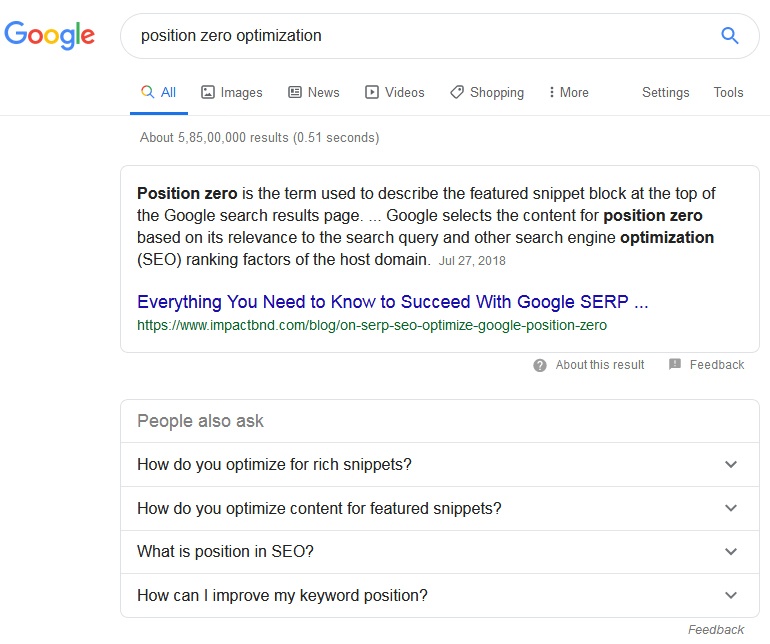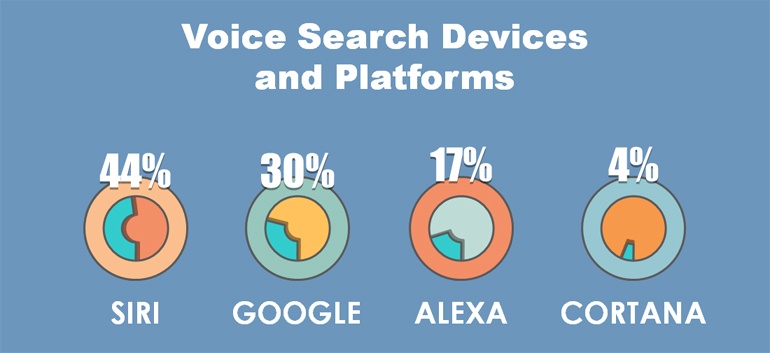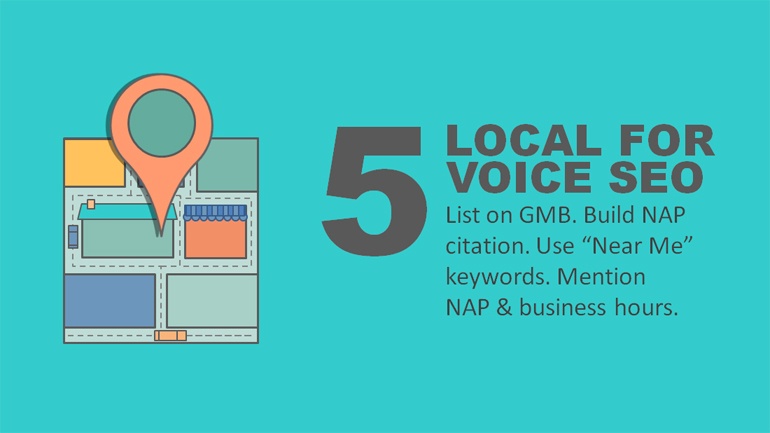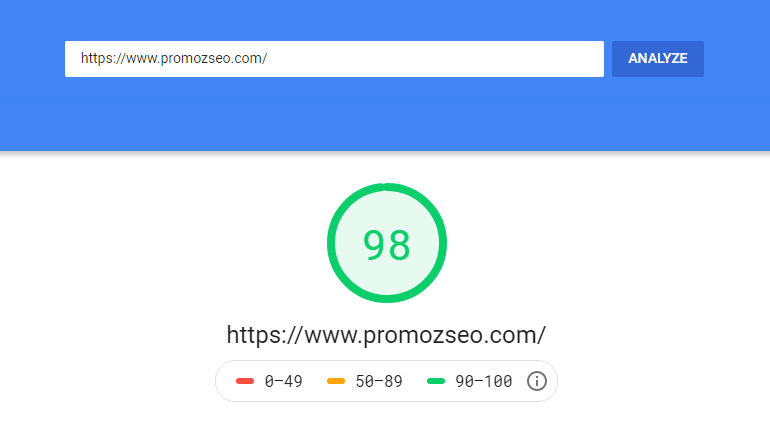7 Voice Search Optimization Techniques That Will Amp Up Website’s Voice-Based Search Rankings

Internet and mobile technologies are changing human psychology and behavior greatly. How we interact with our Internet-enabled devices has been changed significantly over time. Today, we do not only use these devices and technologies but up to a great extent they influence and control us.
If you have noticed, nowadays, many consumers and netizens use their smartphones to ask questions to search engines in words to find out information, brands, and products online. As a result, Google and all major search engines are adjusting their technology and algorithms to align search results with various voice-based searches.
Search engines, like Google, uses Natural Language Processing (NLP) technology to route voice-based searches, understand users’ intents, process their behavior data, and ultimately populate relevant search results.
Being the search engine industry spearhead, Google sensed it almost a decade ago. Their Hummingbird algorithm which was introduced in 2013, lets Google understand the searchers’ intent by processing the keyword and identifying its exact intent. Since after its first inclusion, Hummingbird continues to refine search results based on the natural keywords, optimization process, and on-site user behavior of websites.
In addition to the Hummingbird algorithm, since last few years, Google is also using their RankBrain algorithm to incorporate machine learning and artificial intelligence to their core system to process a variety of conversational user queries more efficiently and quickly.
As a business or website owner, what does Voice Search Optimization mean to you?
The simple answer is you must know how to optimize your website for voice searches. You may think that ‘voice-search’ is a fancy term and you have more time before you can dive deep into this. However, if you believe in data, then the following statistics should be enough for convincing you to start optimizing your site right away for voice searches.
Besides, implementing all these correctly will not only let you optimize your website and its pages for voice-based searches, but these will help you to rank your content on “position zero” as well.

Let’s check out a few startling voice-based search data
- Sundar Pichai, the CEO of Google has stated during Google I/O keynote that 20 percent of the user queries on Android smartphones and apps are voice-based searches.
- A decade ago in 2010, Eric Schmidt, the former Executive Chairman of Google stated, “25 percent of Android searches in the US are voice searches”.
- According to another survey proposed by Google and completed by Northstar Research in 2014, 55 percent of teenage internet users and 41 percent of adults use voice searches at the minimum once a day.
- 46 percent of Google voice search users search for a local business daily.
- 58 percent of searchers found local businesses using voice searches in the last 12 months.
- According to ComScore, 50 percent of all searches are going to be voice-based by 2020.
- Earlier AdWeek forecasted that 67 million voice-based devices will be in use in the United States by 2019.
- In 2016, Gartner anticipated – by 2020, 30 percent of searches won’t be performed with a screen.

Convinced? Now next what? How do you start voice search optimization? The following voice search tips will guide you on the way to analyzing, building, designing, and writing for voice search SEO.
Keyword Optimization – It is About Humans and Not Search Engines

We all know that keywords are essential for SEO and ranking. However, what keywords you are using or how you use keywords on your webpages and contents matter the most. Historically it has been found that keywords that are used in voice searches are longer in length than the keywords searched by typing. Therefore consider using long-tail and variation keywords more than the exact terms.
- While doing keyword analysis for a page, focus on the intent of the given content, its audiences’ pain-points, and their questions in detail. By doing it you can come up with a variety of keywords searched by your target audience using different devices.
- Instead of focusing on the exact keyword terms, try and use conversational keywords which your audience might be using in their daily conversations to find out products related to your business.
- Latent Semantic Indexing or LSI keywords have always been powerful for organic ranking. You can find out these keywords on Google auto-suggestions and the related-searches section. Additionally, you may use tools like UberSuggest or LSIGraph to capture all LSI keywords for a given key-phrase.
- Be sure to use WH keywords starting with how, what, where, when, who terms. These are humanized terms of keywords internet searchers usually use on smartphones and other internet devices to find out results. Use question-based phrases on your contents to make those more human-friendly.
- Remember not to over-optimize contents by stuffing keywords. This old-school SEO technique not only creates poor user experience but also disappoints search engines. Besides, make sure you are not cannibalizing your website by targeting same or similar intent keywords on multiple pages of the same site.
Enjoy the Pleasure of Creating Persuasive Contents

For a true internet marketer, the content has traditionally been the most powerful weapon to outrank competitions and attain incredible results. However, primarily you need to understand that how people search for information through voice search is pretty different from how people used text-based searches. Therefore, when developing and optimizing contents considering voice search, you need to strategize and adjust your contents so that it appears in various relevant voice-based searches.
Make sure to add a “Frequently Asked Questions” section on each of your important pages. FAQ section must answer all the related user-queries that your audience may often come up with related to a topic or product. Addressing those questions in natural and human-friendly language will improve your site’s voice search rankings.
Next, how about knowing your audience questions on a given topic even before you create the content? No doubt, this is going to be a tremendous boost for your content strategy and its overall reach. Answerthepublic.com lists all the questions related to a topic by traversing the internet. During your content planning stage, dig deep enough and jot down the essential questions on a topic. Finally, develop comprehensive answers in audience-friendly language to appease your audiences’ information appetite. It’s good to know that SEMrush’s study showed the average word count of your answers from voice search should be near to 41.4.
In addition to the Answerthepublic.com, you can use sites like Quora.com to find relevant questions your customers are asking on a given topic. Besides, you must answer relevant “People also ask” questions given by Google on Search Engine Results Page.
Many content-marketing research data have confirmed that search engines reward long-form contents that cover all the details of a given topic in depth. Thus, when developing contents, be sure to create great contents that satisfy your audiences’ thirst for knowledge. By creating such painstaking contents you can target many natural-language keywords that are searched by your buyers through voice-based searches.
Your content should be a pleasure to read. Instead of using difficult words and sentences, use natural language that is used by your audience and also ideal for them. Prefer using the simple sentence as much as possible. Avoid big, text-heavy paragraphs as those create many difficulties in reaching a high readability score.
Keep your content properly formatted using paragraph headings, lists, etc. Use the numbered or bullet list to mark up the key points of the topic at the beginning of the content to make it more voice search friendly.
Finally, if you are not yet blogging, start a blog today and consistently create spanking contents for your audience and customers.
Mobile Optimization is More Than a Responsive Website

Internet users do voice searches primarily on mobile devices. Therefore, it is critically important to design every bit of your website mobile friendly.
But what does it mean? Does it mean to design and own a responsive website which opens up on a mobile screen without a horizontal scrollbar? No, it is not that simple.
When having a mobile-optimized responsive website is inevitable today, making it easily accessible on all screen sizes and devices is equally imperative. Be sure to confirm if your site’s hyperlinks, buttons, and other clickable elements are sufficiently spaced or not. If you feel uneasy tapping those on a relatively small screen-size, consider changing their placements and spacing.
Similarly, recheck whether your font size is too small for a mobile device or is it paining your eyes? In case, you are feeling uncomfortable reading your site’s contents on a smartphone screen, your visitors will feel it more and eventually will exit your website. Besides, adjust the spacing between characters (kerning), words and lines (leading) especially for enhancing your site’s mobile usability.
Give your mobile visitors multiple options to interact with your website and its contents in various ways. Use lightweight GIFs, short videos, informative podcasts, quiz sections, etc. to keep them warm on your website. These indicate, how strong and relevant your contents are, and Google uses these signals to promote and demote the site’s organic rankings.
Measure the Top-Speed of Your Website

Will you be comfortable browsing through a website that takes forever to load its contents and products?
Most probably no, you won’t be.
So why don’t you take care of your own website’s speed? Do you know that mobile searchers abandon sites that take more than 3 seconds to load? Even so, if your website is slow on mobile devices don’t blame Google for not showing your site in voice search results.
Instead, you need to take the following quick actions that will ensure a lightning fast website on all devices.
- Make use of Gzip compression to compress all files and resources
- Allow browser caching for your website
- Optimize images, compress and reduce image dimensions before uploading those on your website. Additionally, remove image EXIF data to obtain a smaller file size
- Minify your website’s CSS and JavaScripts files
- Reduce the number of HTTP calls by merging multiple .css and .js files into minimum CSS and JS files
- Get rid of unnecessary lines of codes
- Avoid render-blocking JavaScript calls and inlines
- Use a reputed CDN
Even after implementing these, if you don’t experience any significant improvements in your site’s loading speed, consider migrating to a resourceful server or better hosting plan.
Use Google PageSpeedInsights, GTMetrix to analyze and improve the site’s loading time.
Voice Search and Local SEO

If you are a local business owner and guessing that voice search won’t hit your site’s organic traffic flow, you are doing it wrong. Instead, you should know that a big percentage of your local customers have already adopted voice search because of its convenience and ease of use.
According to a study by Bright Local, 27 percent of people use voice search before they visit the website of a local business. The point is simple, adapt today or die tomorrow, the choice is yours.
However, if you decide to align your local SEO strategy with voice search optimization, the following key ways are going to be vital.
- Consider using local keywords in your contents. Make use of keywords with “near me” phrase intelligently.
- List and verify your complete business details on Google My Business tool. Double check your business Name, Address, and Phone number (NAP) there.
- Afterward, mark up your company’s NAP details with Schema structured data in the website’s footer.
- Additionally, make sure you mentioned your business hours at least on your website’s contact us page.
- Next, focus on building consistent NAP citation on authoritative business directories that accept your business location.
- Aim on acquiring genuine and positive customer reviews consistently.
- Depending on the type of your business, you may also include a detailed brief about your location (mention prominent landmarks, bus stops, metro stations, etc.), local offers and discounts, pricing, etc.
Use the Structured Data, Schema for Voice Search optimization

Albeit, Structured Data do not have a direct impact on site’s organic search rankings, they help search engines to better understand one website, its products, locations, contact numbers, and different other things.
Hence, when doing voice search optimization, you must consider using the Structured Data Schema on your website. Depending on your business and website type, you can add a variety of Schema that fits your business and website to help search engines learn and index those effectively.
Essentially, Schema structured data codes are not built for human visitors but those stay into your website’s source code. You may use a WordPress plugin or Schema code generator to create the codes and use those on your website.
Finally, Schema can help you a lot in voice search optimization by classifying and mapping your website’s details (address, phone numbers, logo, CEO name, etc.), product details (product name, product price, discounts, product ratings etc.), content details (content length, publisher name, author name, publishing date etc.) and many other important things about your business.
Additionally, marking up webpage contents and its various information using Schema may show up your content in the “position zero” which can be a tremendous exposure and traffic source for your website.
Artificial Intelligence and Machine Learning

Google and all big search engines use Artificial Intelligence (AI) to learn user queries and intents searched on a variety of devices. However, processing voice searches and listing relevant results require more intelligent and sophisticated efforts than that of the text-based searches. The simple reason is, text-based searches are keyword oriented, where voice searches are conversational in nature.
Now, if you think about how AI and Machine Learning (ML) are going to affect voice search results, the answer is straight and simple. If Google is unable to process your content-language, learn about your business, its products, its audience, etc. then it’s going to be increasingly difficult for you to position your website during a relevant voice search.
Hence, the key point here is to help Google learn about your website, products, contents, audiences and all in detail.
How can you stay one step ahead of the competitions using voice search optimization, AI, and ML?
- Analyze the website’s historical data, user behavior and finally plan your contents that are more focused on your customers and audience.
- Categorize your products and contents logically and meaningfully.
- Create extensive content answering all possible questions on a given topic.
- Use AI-enabled chatbots to assist your customers and collect more critical user data.
Wrapping Up
Voice search is increasing day by day, but still, it is in its very beginning. However, an intelligent and skilled SEO will take advantage of this early stage by continuously optimizing his website for voice searches.
In addition to these 7 voice search optimization tips, you shouldn’t ignore the backlink building from authoritative sources, social engagements and security (implement HTTPS) of your website.
If you haven’t yet started doing voice search optimization for your site, then this is the right time to initiate the process. You should implement the things mentioned in this post and alongside, you may also find a few effective techniques of voice search optimization in the course of your execution. Finally, let us know how you have incorporated voice search optimization strategies on your current website and how it goes for you.
An advanced All-in-One Digital Marketing Course.
Mentored by Mr. Soumya Roy, the Founder, CEO of PromozSEO Web Marketing Academy.- Reasons Your Business Needs to be on Instagram - September 16, 2021
- 7 Reasons Your Business Should Invest in Professional Content Creation - August 12, 2021
- 5 Ways You Can Improve Your Website’s Existing Backlinks - April 30, 2021







4 Responses
Really informative, thanks for sharing this!
Thanks Johnson Jucean.
Dear Soumya Roy,
Thanks for the insightful article. You have covered knock and corner of Voice SEO.
Thanks Venkatesan Gopal. I hope this Voice SEO post will help you do the voice-based optimization better than ever.
Comments are closed.